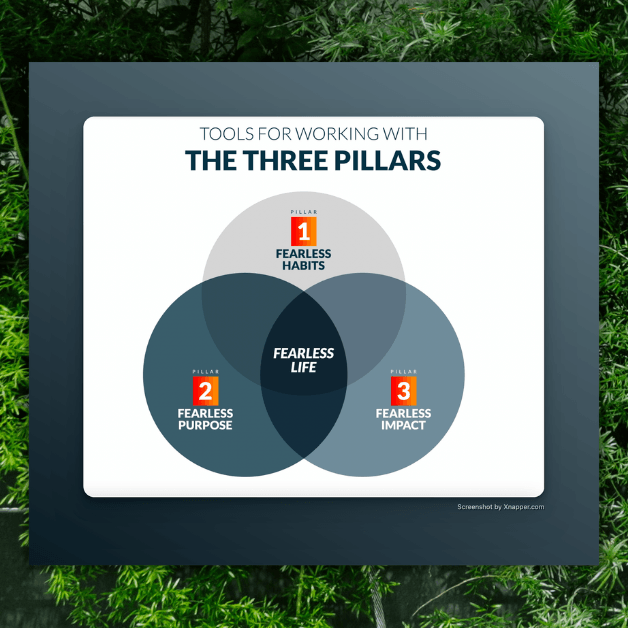‘A good traveler has no fixed plans, and is not intent on arriving.’ ~Lao Tzu
Post written by Leo Babauta.
There is something about my mind, and many people’s minds, that is overly optimistic.
We think we can do so much each day, and so we overplan. We fill our plans with so much, confident we can do it all, ignoring the evidence of the past when most plans didn’t get done and most things didn’t get crossed off as hoped.
We believe that, sure, we might have failed to meet our expectations in the past, but this time will be different! This time, we will do better. This time, we will be disciplined and productive and get more done.
Yes, that’s an excellent plan. Let me know how that works out.
Hint: It never works out for me. I’ll give you a good recent example.
What I Learned on Vacation
As I said last week, my family and I recently went on a short vacation to sunny and sublime San Diego for four days. As usual, I had lots of goals and expectations (I can’t seem to help it):
- I bought a book (The Girl Who Kicked the Hornets’ Nest) and planned to finish it in just over 4 days of vacation — which meant about 150 pages per day. No problem!
- I brought a yoga DVD, planning on doing yoga every morning as the kids slept in.
- I thought I could do some beach running every morning too, as we were staying a block from the beach.
- I had lots of work I thought I could get done too.
- And of course, we were going to walk around and explore San Diego all day, hang out at the beach for hours, and eat at lots of restaurants.
Guess how much of that got done? I did read a fair amount, but only about half the book. I didn’t even open the plastic wrapping on the yoga DVDs. I did almost no work. I ran for maybe 10 minutes at the beach once. We did a lot of walking and exploring and eating, and hung out at the beach a fair amount, but little else.
I overplanned. I was overly optimistic. I had lots of goals and expectations.
Yes, I’ve been mostly going without goals for awhile now, but I slip into my old habits frequently.
Not Overplanning in Real Life
Sure, many experienced travelers know that I made a basic traveling mistake — overplanning is common among travelers, and the best of us plan very little on most trips. I know this, and usually follow that advice. I guess the plans above were subconscious plans and goals that my mind was making without me really trying. It was only during the middle of the trip that I realized I’d had high expectations of myself for the trip, and had set goals without realizing it.
But here’s the thing: travelers know we should travel without goals and too many plans … but what about in the rest of our lives?
Most people who travel with few plans and goals ignore this wisdom in regular, daily life.
In our daily personal and work lives, we overload ourselves and overplan. We are overly optimistic about what we can do, despite past evidence. We set too many goals and have too high expectations.
Here’s what I’ve learned from my vacation (and the last couple years) that can help with overplanning and goal setting in our daily lives:
- Leave plans to a minimum. That’s not to say you won’t do anything, but plan as little as possible — most of what you might plan won’t get done anyway. Why create a fiction? Leave wide open blocks with few scheduled appointments when possible.
- Learn to act fluidly. If your day is mostly wide open, how do you fill it? Flexibly. You don’t have plans or goals, but know how to pick your priorities fluidly, in the moment. At this moment, what is the thing you’re most excited about? What is the most important thing you can do? What can you do that will change your life the most? This is a skill that you learn by practice, but planning ahead what you should do makes no sense when the landscape is changing constantly.
- We are not walking a path, but surfing a sea. Most people look at goal setting as picking a destination, then figuring out a path to get there. That assumes you’re walking on land that will change very little, and that while you will have unforeseen obstacles, you’ll be on stable ground and the destination won’t move. That’s not at all true — life is more like the sea, ever changing with no fixed paths or destinations, with swells and currents and waves that change everything at every moment. The ultimate skill, then, isn’t setting a destination (goal) or a path (plan), but surfing. In surfing, you take whatever waves come, learn to judge the waves as they come, learn to ride the wave as it changes, not as you planned. It’s going with the flow (literally), and changing what you do depending on how the flow changes.
- Your plans might fall apart, but life will be greater for it. While nothing went as I’d apparently hoped it would on our trip, I was completely happy. We still filled our days with exploring and trying new things and play, and living in the moment meant I didn’t care that I didn’t get the work done or do the yoga or accomplish the massive amounts of reading I’d hoped. Life changes things, and it’s when we cling to our goals and plans that we are unhappy or stressed — when we learn to surf the wave as it comes, we can be very happy, no matter what comes.
